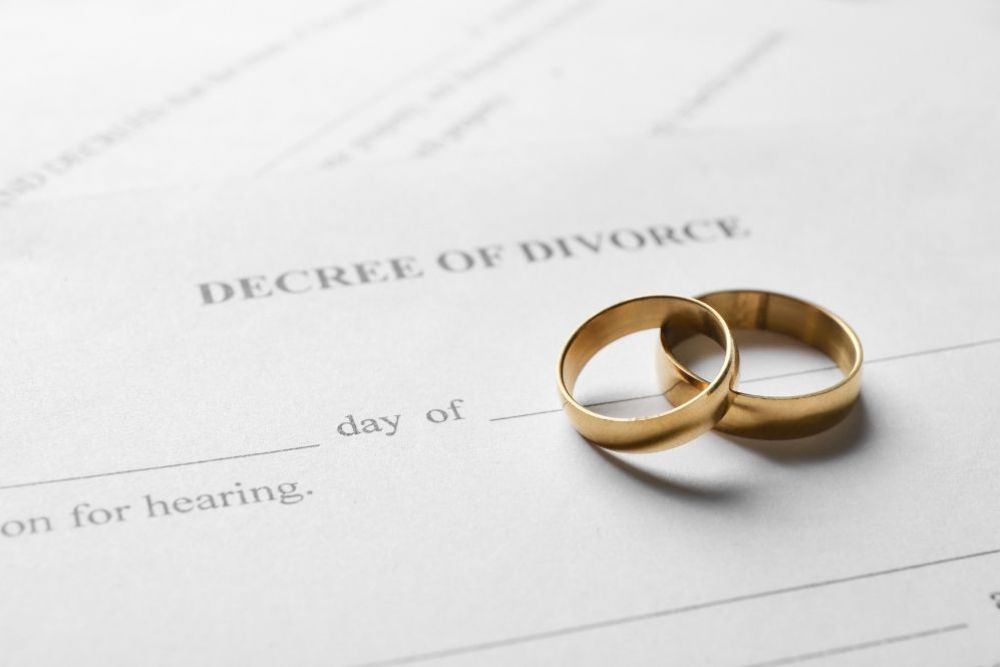
- Key Takeaways
- The Differences Between a Contested and Uncontested Divorce
- What is an Uncontested Divorce?
- The Uncontested Divorce Process
- What is a Contested Divorce?
- The Contested Divorce Process
- Signs an Uncontested Divorce Needs to be Contested
- Why Work With Cordell & Cordell for Your Divorce
- We’re Here For Whatever Your Divorce Entails
- A Partner For You

- Key Takeaways
- The Differences Between a Contested and Uncontested Divorce
- What is an Uncontested Divorce?
- The Uncontested Divorce Process
- What is a Contested Divorce?
- The Contested Divorce Process
- Signs an Uncontested Divorce Needs to be Contested
- Why Work With Cordell & Cordell for Your Divorce
- We’re Here For Whatever Your Divorce Entails
- A Partner For You
Key Takeaways
- Couples who want a divorce and can reach an amicable agreement can typically pursue an uncontested divorce.
- Contested divorces usually take more time to settle because there are more disagreements to resolve.
- In some situations, an uncontested divorce experiences complications and becomes a contested divorce situation.
- Working with an experienced divorce attorney can help you with either a contested or uncontested divorce.
When dissolving a marriage, many men struggle to decide whether to settle in an uncontested divorce or to take things to court. Understanding the distinction between these two options is crucial for understanding what the divorce process will entail.
Whether a divorce is contested is not about whether you both agree to divorce, it’s about whether you both agree on the terms of the divorce. The choice between these paths can significantly impact the financial and emotional outcome of the divorce process.
This article covers the basics of contested and uncontested divorces. When you’re ready to begin, Cordell & Cordell is here to help you with your divorce.
The Differences Between a Contested and Uncontested Divorce
Two of the biggest differences between these two types of divorce relate to the cost and speed of the process.
- Contested divorces typically are more time-consuming to resolve because there are more disagreements to resolve.
- Uncontested divorce generally results in lower legal fees. Furthermore, an uncontested divorce may not be appealable since both parties are in agreement. If a contested divorce cannot be settled by those involved, the judge will have the final say, and those decisions may not align with either party’s wishes.
Whether you believe your divorce is or will be “uncontested” or “contested,” you should consider hiring a divorce attorney to protect your interests.
What is an Uncontested Divorce?
Uncontested Divorce occurs when both parties agree to a divorce and to the terms of a proposed divorce. There is a common misconception that an uncontested divorce refers to the spouses’ willingness to be divorced at all. This is not true.
Uncontested Divorce Example
Uncontested divorce process: Will and Marie are married. Will does not want a divorce, but Marie retains an attorney and files a suit anyway. Will is served with Marie’s petition. In her petition, Marie requests that the court award the family home to her, and Will agrees. Marie’s attorney drafts a more detailed document to finalize the terms of the divorce. Will retains an attorney and they review the document together. Will agrees to a divorce and to all the terms, and he signs it.
The Uncontested Divorce Process

In many divorce cases, the uncontested divorce process is pretty straightforward, although individual states have specific requirements you’ll need to meet, such as residency requirements and waiting periods. Once you meet any requirements, you’ll sign a final marital settlement agreement (MSA) which includes:
- Child custody arrangements
- Parenting time for non-custodial parent
- Child support
- Division of marital assets and debt
- Spousal support (also referred to as alimony)
- Restoration of maiden name, if applicable
- Any other relevant divorce-related issues
What is a Contested Divorce?
A contested divorce case simply is a divorce in which one of the parties has brought a suit for divorce, and the other party does not agree to any or some of the proposed terms of the divorce. It may also be helpful to consider the issues in a divorce, rather than the whole suit itself, as uncontested or contested.
For example, you and your spouse may agree on how you think the property should be divided in one area of the suit but disagree on another, like where the children should go to school. You may save time and money by litigating only those issues on which you disagree.
As another example, if you file a petition for divorce, and your spouse files a counterpetition or other responsive pleading requesting that the court deny your requests, your divorce is “contested.”
Contested Divorce Example
Will and Marie are married. Will does not want a divorce, but Marie retains an attorney and files a suit anyway. Will is served with Marie’s petition. In her petition, Marie requests that the court award the family home to her, but Will thinks they should sell the home and split the net proceeds instead. Will retains an attorney, and his attorney files a pleading requesting that the court deny Marie’s requests for relief.
The Contested Divorce Process

In an ideal world, you’d pursue an uncontested divorce, but realistically that might not happen. In cases where spouses have major disagreements in one or more areas where they just cannot agree, a divorce becomes contested. Here is the process you can generally expect.
Steps to File a Contested Divorce:
- File a divorce petition.
- One spouse serves the other divorce papers.
- The spouse who was served will file a response, identifying areas of disagreement.
- A dispute resolution method is chosen (e.g., divorce mediation, collaborative divorce, or trial).
- If the case goes to trial, an exchange of information occurs, which is called discovery.
- Attend a court hearing.
- A settlement conference occurs to see if parties can resolve outstanding issues.
- Schedule a trial for issues not resolved without judicial intervention.
- Wait for the court’s decision.
Once all issues are resolved, regardless of the method of dispute, you’ll obtain a final judgment where the court signs off to dissolve your marriage, and you receive your divorce decree.
Signs an Uncontested Divorce Needs to be Contested
Even if both spouses have every intention to keep the legal process simple, sometimes even uncontested proceedings go sideways. The following are signs it might be a contested divorce.
- Your spouse isn’t responding to your settlement proposal.
- One or both spouses let their emotions lead discussions, creating additional disputes.
- One or both spouses evade disclosing pertinent asset information.
- Mediation or other attempts to resolve differences just aren’t working.
- Your divorce lawyer can’t come up with any more ways to get your spouse to settle your case without court intervention.
Why Work With Cordell & Cordell for Your Divorce
The experienced family law attorneys at Cordell & Cordell understand the legal intricacies of common divorce obstacles. Oftentimes, men experience bias, especially with issues such as child custody, financial support, and fair property division. Our clients know we’ll advocate for them every step of the way until the divorce is final.
We’re different from other divorce law firms because we’ve developed a deep understanding of the issues men face during a divorce. We provide our clients with 24/7 access to their cases through our client portal as well as access to a client care representative.
Testimonials
“[Attorney] was very helpful. I had no issues, he was always there for me.” — Louis H.
“I was shocked at the level of communication from [my attorney]. He gave me so many updates, even when there was a lull in the case, he would let me know nothing new had happened. It was fantastic because I knew if the ball was rolling and when it wasn’t. He told me what was good and what was bad and asked me what I wanted to do.” — Stephen B.
We’re Here For Whatever Your Divorce Entails
We are compassionate and understanding attorneys at Cordell & Cordell. Our attorneys aggressively champion your case so that you receive a fair outcome in your divorce settlement. If an uncontested divorce appears impossible, we are prepared to fight for your legal rights and bring your case to trial so you can have your day in court.
To schedule your consultation, call us today at 866-DADS-LAW (323-7529) or fill out our online contact form and a member of our legal team will be in touch.

Written by Joseph E. Cordell

Joseph E. Cordell is the Principal Partner at Cordell and Cordell, P.C., which he founded in 1990 with his wife, Yvonne. Over the past 25 years, the firm has grown to include more than 100 offices in 30 states, as well as internationally in the United Kingdom. Mr. Cordell is licensed to practice in the states of Illinois and Missouri and received his LL.M. from Washington University in St. Louis, Missouri. Joseph E. Cordell was named one of the Top 10 Best Family Law Attorneys for Client Satisfaction in Missouri.
Featured Resource Articles
Latest Resource Articles







